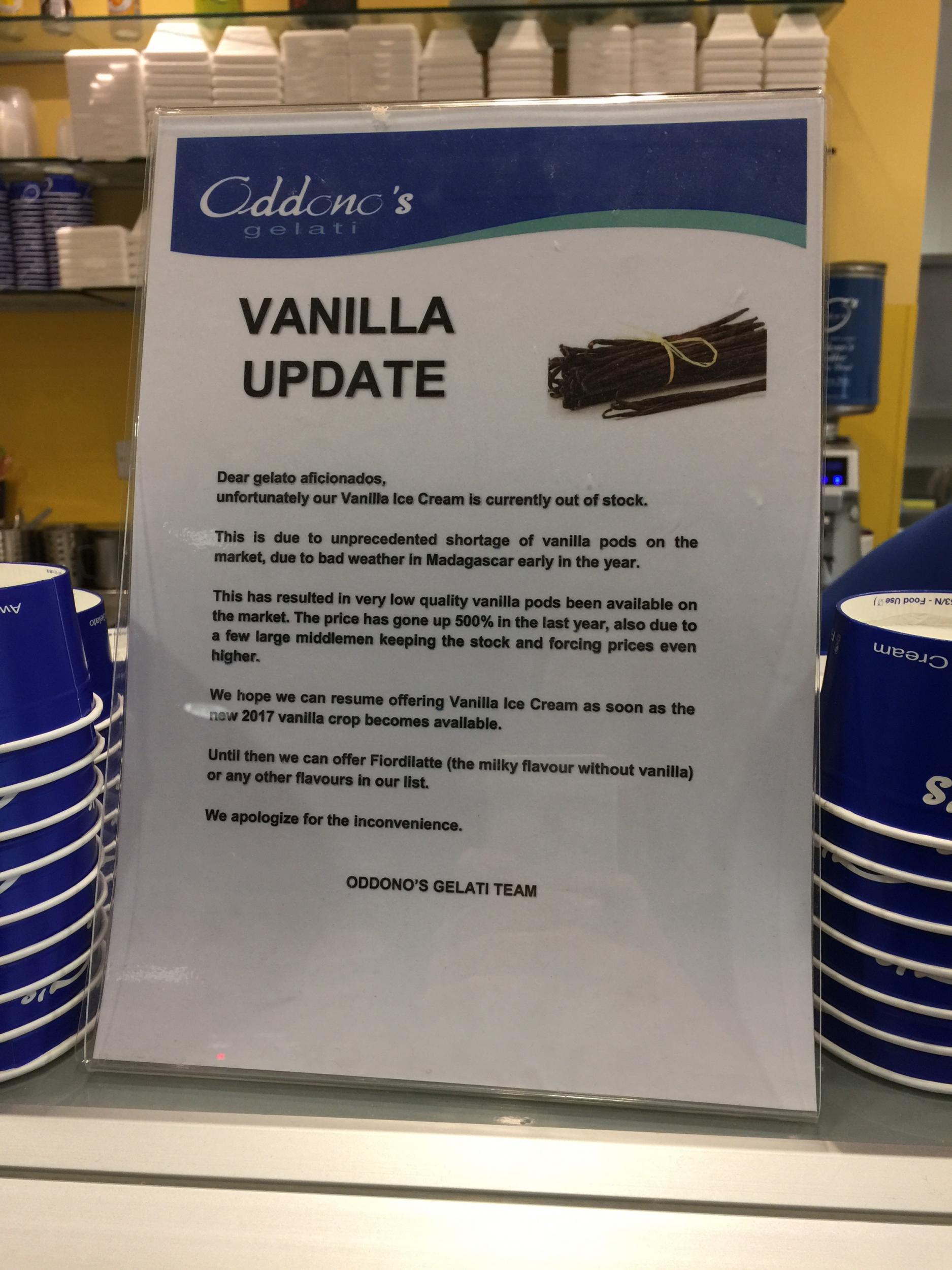Vanilla inflation is causing a global shortage in the UK's most popular ice cream
'Ice Ice Baby' - hold the vanilla

Your support helps us to tell the story
From reproductive rights to climate change to Big Tech, The Independent is on the ground when the story is developing. Whether it's investigating the financials of Elon Musk's pro-Trump PAC or producing our latest documentary, 'The A Word', which shines a light on the American women fighting for reproductive rights, we know how important it is to parse out the facts from the messaging.
At such a critical moment in US history, we need reporters on the ground. Your donation allows us to keep sending journalists to speak to both sides of the story.
The Independent is trusted by Americans across the entire political spectrum. And unlike many other quality news outlets, we choose not to lock Americans out of our reporting and analysis with paywalls. We believe quality journalism should be available to everyone, paid for by those who can afford it.
Your support makes all the difference.A vanilla ice-cream shortage has hit the UK.
The nation's favourite flavour is already out of stock for the foreseeable future in some of the capital's gelato stores, with one shop in Chiswick, West London, posting a sign telling customers that an "unprecedented" vanilla pod shortage was to blame.
It's due to poor harvests earlier this year in Madagascar, which caused the price of vanilla pods to soar by up to 500 per cent.
A hefty cyclone, named Enwao, hit the country - where 80 per cent of the world's vanilla is produced - in March and destroyed a substantial part of the island’s vanilla plantations, which reduced production rates by 30 per cent.
Natural disasters aren’t the only thing to blame. A haphazard and disorganised approach within the Madagascan market may also be culpable for the recent inflation in vanilla, according to Phillippe Chalmin, an economic history professor.
Vanilla also happens to be one of the most labour-intensive foods to produce. It is taken from the seed of an orchid and, as the spice is grown in Madagascar where there are no natural pollinators, has to be extracted by hand with a very small stick. Even after that, it can take months for the seed pods to fully cure.
"It's not certified organic. It's not fair trade," explained Gerry Newman, co-owner of a baking company in Vancouver who has been forced to change some of his recipes in lieu of the recent shortage.
"There's a guilt I have over that,” he continued, “because we're talking about something that's all hand labour, and if these people aren't being treated fairly, it's really sad," Newman told NPR.
Vanilla is renowned for being one of the priciest spices around and has continued to soar in price over the last decade. With the recent inflation, it is now considered to be a luxury item as the price per kilo has risen from $175 (£135) to a staggering $700 (£538).

Unsurprisingly, this is already having a huge impact on British retailers, particularly smaller outlets with lower resources for whom the price has become too much to grapple with.
“The price has gone up 500 per cent in the last year, all due to a few large middlemen keeping the stock and forcing prices even higher,” explained a Chiswick outpost of the popular gelato chain Oddono’s.
Vanilla has been the most popular ice cream flavour in the UK for decades, according to the Ice Cream Alliance, but it looks like the shortage will have us reaching for riskier alternatives that many cutting-edge gelato shops now offer, think basil, olive oil and beetroot.
Join our commenting forum
Join thought-provoking conversations, follow other Independent readers and see their replies
Comments